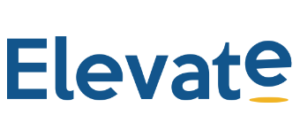Have you noticed that two of the broadest and most common terms in our industry – “talent acquisition” and “recruiting” – are often used interchangeably?
Talent acquisition and recruitment are two very distinct ideas. They have never been more different, either, given that they are being driven even further apart by new technologies and trends.
That tendency to confuse the two terms can make it difficult for recruiters and hiring managers to work accurately and make the most of both concepts.
Let’s fix that.
How Are Talent Acquisition and Recruitment Different?
Here’s a closer look at the definition of these two terms:
Recruitment
Recruitment is more of an action that’s all about filling vacancies. Recruitment is the process of identifying a vacancy within a business and then setting the wheels in motion to source, interview and eventually hire the appropriate candidate.
This is most often a short-term tactic that’s focused around finding the right talent as quickly and as cost-efficiently as possible.
Talent Acquisition
If recruitment is a short-term action, talent acquisition can be seen as more of a long-term strategy: talent acquisition is about identifying specific talent requirements in advance and using cutting-edge techniques to make it as simple, effective and inexpensive as possible to find specific talent.
This means that talent acquisition can give companies the ability to find the perfect candidates for complex roles.
What Are the Advantages of Talent Acquisition?
Recruitment is perhaps what most people think of when they imagine the day-to-day reality of the recruitment industry. Talent acquisition is becoming increasingly important, though, given that talent scarcity and the competition for that talent is more fierce than ever before.
You can expect to unlock the following benefits if you decide to invest in your talent acquisition strategy:
Find niche talent
The global talent shortage is a real issue. In fact, a study from Korn Ferry found that by 2030 there will be a universal human talent shortage of 85 million people – roughly the population of Germany.
The dearth of skilled candidates will put lots of pressure on businesses to compete for the few qualified and experienced candidates out there. A robust talent acquisition strategy can help companies to identify vacancies earlier than competitors, and keep tabs on the appropriate candidates.
In a context where the fight for the best talent is more fierce than ever before, it’s little wonder that more businesses are trying to develop robust talent acquisition strategies.
Develop your employer brand
Strong employer branding can help businesses to stand out from the crowd to attract and retain the best employees. That’s why figures from LinkedIn show that 72% of recruiting leaders around the world agree that employer brand has a significant impact on hiring.
Talent acquisition forces businesses to think carefully about their employer brand and incorporate it into their strategy. The act of developing and executing a talent acquisition strategy can help businesses to build strong employer brands that give them the edge over their competition.
Bring the talent to you
There are a number of figures around that try to define the average cost per hire in the UK. According to the HR review, that figure stands at around £30,614 per employee when accounting for the cost of lost output too.
A robust talent acquisition strategy can help you to slash those costs by bringing the talent to you. This can make the hiring process cheaper and faster. Those applicants are often very enthusiastic about your business, and they’ll become top performers for your company, too.
Key Talent Acquisition Trends for 2020
Talent acquisition is continually evolving. Here are the latest trends that are shaping talent acquisition strategies around the world.
AI-driven technology is growing in power – and popularity
Today, AI is helping recruiters around the world to execute ambitious talent acquisition strategies. According to LinkedIn, AI is helping recruiters and hiring managers save time (67%), remove human bias (43%) and deliver the best candidate matches (31%).
Over the course of 2020, we’ll see nascent AI platforms further augment the capabilities of recruiters and hiring managers.
Predictive analytics is starting to uncover talent needs
Sophisticated tools and platforms are now able to use troves of historical data to make accurate predictions about the future talent needs of organisations. Businesses around the world are making the most of these tools to inform their talent acquisition strategy.
This can help to expedite the hiring process and – paired with powerful AI-driven talent acquisition platforms like Elevate – give businesses the best chance of sourcing the right talent.
Teams are using AI to tackle unconscious bias
A number of studies have shone a light on the benefits of a diverse workforce. Those teams are often happier, more productive and more innovative.
Unconscious bias is sometimes a barrier to cultivating a genuinely diverse workplace; however this is why recruiters and hiring managers around the world are using AI-driven talent acquisition tools to fight against bias and discrimination.
These AI technologies are helping to surface the best candidates for the role, and they can empower businesses to engage in blind hiring.
Acquire the Right Talent with Elevate
Elevate offers an AI-driven platform that empowers talent acquisition teams to augment their abilities and bring out their full potential. Learn more about Elevate and how you can leverage our platform to move fast and recruit the talent you need.
